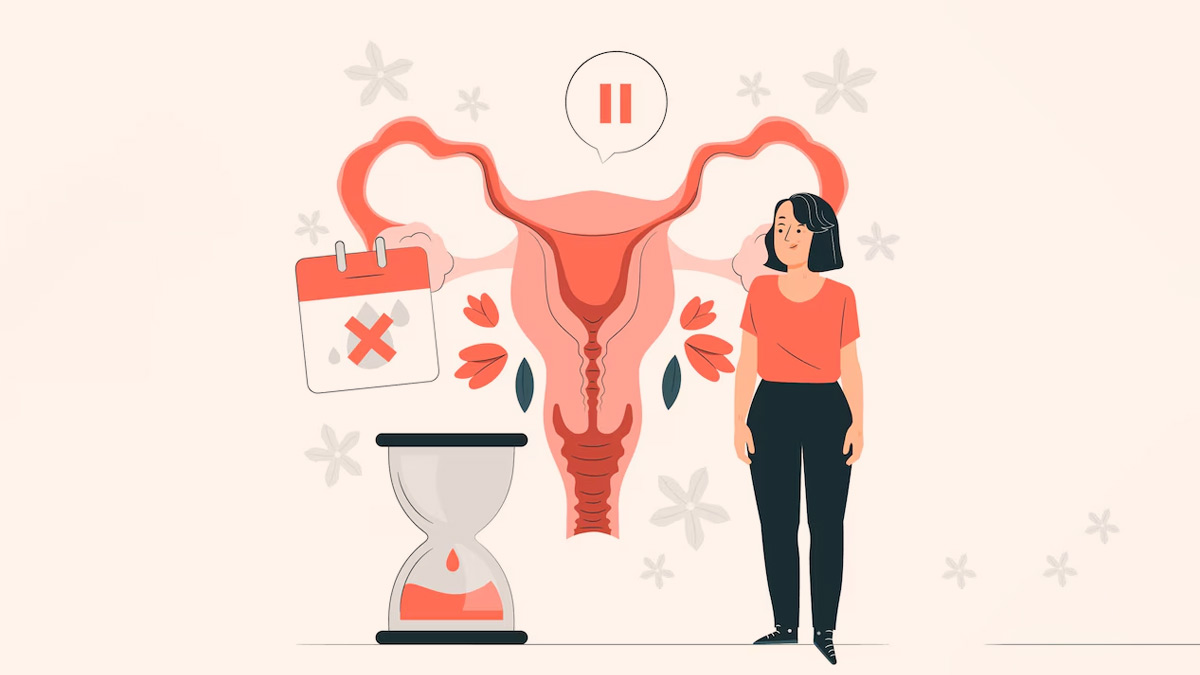
Heart disease remains the leading cause of death for both men and women globally. However, women generally develop heart conditions later than men due to the protective effect of oestrogen during their reproductive years. After menopause, women experience a sharp rise in cardiovascular risk, catching up to men of a similar age and health profile.
Table of Content:-
To understand this, OnlyMyHealth team interacted with Dr Haresh G Mehta, Director Interventional Cardiology, S L Raheja Hospital, Mahim-Fortis Associate.
Dr Haresh Mehta explains, "Oestrogen provides a unique protective barrier against heart disease in women. However, after menopause, this protection significantly diminishes due to the drastic decrease in oestrogen levels, shifting the hormonal balance towards a testosterone-dominant profile. This hormonal shift directly impacts fat distribution, blood clotting, and cholesterol levels, increasing the risk of heart disease."
The Role of Oestrogen in Heart Health

Oestrogen has a profound effect on cardiovascular health by maintaining favourable cholesterol levels. It helps increase the levels of high-density lipoprotein cholesterol (HDL-C) or “good” cholesterol while keeping low-density lipoprotein cholesterol (LDL-C) and triglycerides in check. After menopause, the reduction in oestrogen causes an increase in LDL-C and triglycerides, which can contribute to the buildup of plaques in the arteries. This leads to accelerated plaque buildup and coronary artery calcification, further heightening the risk of heart disease.
Studies have consistently shown that post-menopausal women face higher risks of developing cardiovascular disease (CVD), such as coronary artery disease and stroke. This is why regular cardiovascular risk assessments are crucial.
Also read: A Gynaecologist Answers The Most Common Questions Asked About Menopause
Monitoring Key Health Metrics

After menopause, it is essential for women to keep track of key health indicators like cholesterol levels, blood pressure, and blood glucose levels. “Post-menopausal women should undergo cardiovascular disease (CVD) risk assessments,” advises Dr Mehta. “Based on the findings, additional tests, such as stress tests, echocardiograms, or coronary artery calcium scoring, may be required to further evaluate their heart health.”
Women should also stay informed about their cholesterol levels. It’s important to know that after menopause, LDL cholesterol and triglyceride levels may increase, while HDL cholesterol levels may decrease. Regular check-ups can help manage these changes.
The Role of Hormone Therapy
There has been ongoing debate about the role of hormone replacement therapy (HRT) in reducing cardiovascular risk after menopause. Dr Mehta mentions, "While some studies have shown benefits of hormone therapy in reducing heart disease risk, the results have been inconsistent. Therefore, hormone therapy is not currently recommended for CVD risk reduction in all women, but in specific cases, it may be considered under medical supervision."
Also read: How To Improve Your Brain Health During Menopause
Maintaining Heart Health After Menopause
To maintain a healthy heart after menopause, a combination of lifestyle modifications is essential:

Exercise regularly: Engaging in at least 150 minutes of moderate-intensity physical activity per week has been proven to lower the risk of cardiovascular disease. This could include walking, swimming, or cycling.
Healthy diet: A balanced diet rich in fruits, vegetables, whole grains, lean proteins, and healthy fats is critical for maintaining optimal heart health. Reducing salt intake and avoiding processed foods can help manage blood pressure and cholesterol.
Manage stress: A positive attitude and stress-management techniques such as meditation, deep breathing exercises, or yoga can improve overall well-being and heart health.
Quit smoking: If you are a smoker, quitting can significantly lower your risk of heart disease.
Monitor weight: Maintaining a healthy weight is important for reducing the strain on your heart and managing other risk factors like diabetes and hypertension.
Conclusion
As women transition through menopause, it becomes crucial to prioritise heart health. “By staying proactive with regular health check-ups, lifestyle changes, and awareness, women can significantly reduce their risk of cardiovascular disease,” emphasises Dr Mehta. Menopause might mark the end of one phase, but with the right care, it can also be the beginning of a healthier, stronger heart.
Also watch this video
How we keep this article up to date:
We work with experts and keep a close eye on the latest in health and wellness. Whenever there is a new research or helpful information, we update our articles with accurate and useful advice.
Current Version